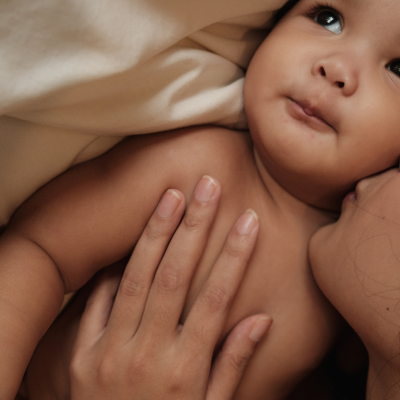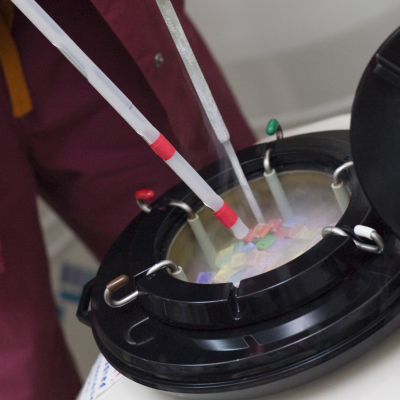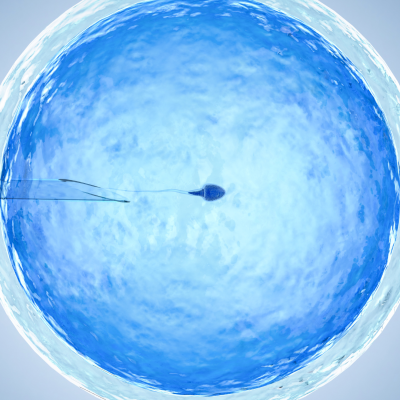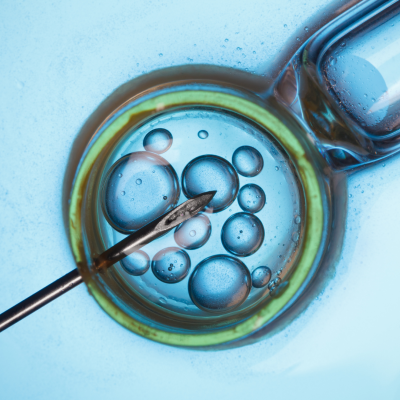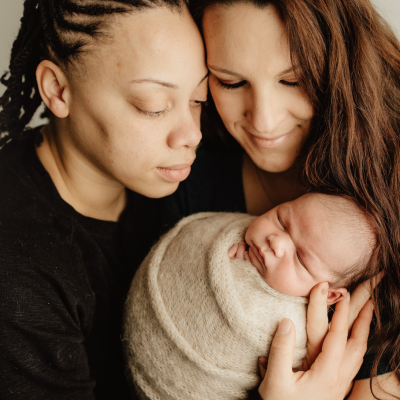Gender Selection in Los Angeles
Gender / Sex Selection
Gender selection is a technique which allows couples to increase the odds of delivering a child of a particular sex. As discussed above, certain medical indications may exist which require gender selection in order to ensure the well-being of a child (see PGD/sex-linked disorders). Couples without a specific sex-linked genetic mutation may pursue gender selection for the purpose of family balancing.
Gender selection can be performed with a variety of techniques, which vary in accuracy and success. The simplest method is the Ericksson sperm washing/insemination protocol, which is easy to perform and affordable, but achieves limited accuracy. Using the Ericksson method sperm is suspended in a special washing solution and then “spun” in a centrifuge for several minutes, allowing for a separation between X-bearing sperm (which lead to a female) and Y-bearing sperm (which would result in a male) based on different density gradients. Because this separation is not absolute but rather contains an overlap between a population of X-bearing and Y-bearing sperm, this technique can result in inaccuracy. Couples choosing the Ericksson method for gender selection look to give themselves an advantage towards one gender over the other, rather than a clear choice.
A more complex method of sperm selection uses the Microsort® technology. In this protocol, X-chromosome bearing sperm is separated from Y-chromosome bearing sperm using a flow cytometer. Accuracy of the Microsort® technology is limited and depends on the gender desired (female more accurate than male). Since the amount of sex-selected sperm available after sorting is often too little for insemination to be successful, in vitro fertilization is generally the procedure performed in conjunction with the Microsort® technique. Unfortunately, despite encouraging accuracy results for gender selection, the Microsort® technique failed to receive FDA approval, and the company who initially conceived the technique was forced to terminate its clinical trial, making this technology unavailable as of April 2011.
The most accurate method for gender selection available today involves preimplantation genetic diagnosis (PGD). PGD may be combined with either the Ericksson and/or the Microsort® technique(s) to improve sperm selection, however differs from the abovementioned protocols in that it allows definitive determination of an embryo’s gender prior to implantation in the uterus. After embryos are conceived through IVF, each embryo is biopsied prior to embryo transfer, and a specific chromosomal test is applied in order to determine gender (XX=female, or XY=male). Other chromosomal abnormalities may also be ruled out with the biopsy. Then, chromosomally normal embryos of the desired gender (only female embryos, for example), are transferred into the uterus. Accuracy rates reach 99% or higher. The technique is safe and highly successful.
Located in Southern California, and serving a highly diverse ethnic population with large cultural and traditional backgrounds, often with unique family balancing needs, the California Center for Reproductive Health (CCRH) has become a leading gender selection Center in Los Angeles and its periphery. CCRH is proud to offer the latest innovations in sex selection to patients in the Greater Los Angles area and beyond.
Don’t just take our word for it!
Listen to what our patients have to say.
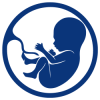
3,000+

20+

2X
FAQ
Reproductive endocrinology and Infertility is a sub-specialty of Obstetrics and Gynecology. In addition to managing medical and surgical treatment of disorders of the female reproductive tract, reproductive endocrinologist and infertility (REI) specialists undergo additional years of training to provide fertility treatments using assisted reproductive technology (ART) such as in vitro fertilization.
Reproductive endocrinologists receive board certification by the American Board of Obstetrics and Gynecology in both Obstetrics and Gynecology and Reproductive Endocrinology and Infertility.
In general, patients should consider consulting with an REI specialist after one year of trying unsuccessfully to achieve pregnancy. The chance of conceiving every month is around 20%, therefore after a full year of trying approximately 15% of couples will still not have achieved a pregnancy.
However, if a woman is over the age of 35 it would be reasonable to see a fertility specialist earlier, typically after 6 months of trying.
Other candidates to seek earlier treatment are women who have irregular menses, endometriosis, fibroids, polycystic ovary syndrome (PCOS), women who have had 2 or more miscarriages, or problems with the fallopian tubes (prior ectopic pregnancy).
Approximately 1/3 of the time cause for infertility is a female factor, 1/3 of the time a male factor, and the remaining 1/3 a couples’ factor.
At CCRH, we emphasize the importance of establishing a correct diagnosis. Both partners undergo a comprehensive evaluation including a medical history and physical exam.
Furthremore, the woman’s ovarian reserve is assessed with a pelvic ultrasound and a hormonal profile. A hysterosalpingogram (HSG) will confirm fallopian tube patency and the uterine cavity is free of intracavitary lesions. A semen analysis is also obtained to evaluate for concentration, motility, and morphology of the sperm.
Additional work up is then individualized to direct the best possible treatment option for each couple.
In vitro fertilization (IVF) is the process that involves fertilization of an egg outside of a woman’s body.
The process starts with fertility drugs prescribed to help stimulate egg development. In your natural cycle, your body is only able to grow one dominant egg, but with stimulation medication we can recruit multiple eggs to continue to grow. After about 8-10 days of stimulation, the eggs are surgically retrieved and then fertilized with sperm in a specialized laboratory. Fertilized eggs are then cultured under a strictly controlled environment within specialized incubators in the IVF laboratory for 3-5 days while they develop as embryos. Finally, embryos (or an embryo) are transferred into the uterine cavity for implantation.
Before deciding if IVF is the right choice, it’s important to sit down with an REI specialist to discuss available treatment options. For some people, other methods such as fertility drugs, intrauterine insemination (IUI) may be the best first choice treatment. At CCRH, we believe each individual couple is unique and not everyone needs IVF.
While not painful, the fertility medications may some side effects including headaches, hot flashes, mood swings, and bloating. The injection sites may also bruise.
Unfortunately, no. Many people think once they start IVF it’s a matter of time that they will be pregnant and have a baby. But according to national statistics per the Society of Assisted Reproduction (SART), on average 40% of assisted reproduction cycles achieve live births in women under age 35. The chances of success then continue to decrease with advancing age.
At CCRH, we employ only evidence-based interventions to ensure patient safety and optimal outcome. While we cannot guarantee a baby, we guarantee that you will receive the best, most advanced, personalized care to help you maximize your chance of a baby.
The average IVF success rate (success measured in live birth rate) using one’s own eggs begins to drop around age 35 and then rapidly after age 40. This is due to the decline in egg quantity and egg quality as a woman ages.
Our clinic’s success rate consistently beats the national average year after year.
Individual insurance plans often do not have any coverage for infertility treatments. If you have a group plan, you can call members services to see if they have coverage for infertility (including consultation/workup and IVF).
After your consultation with our REI specialist, one of our dedicated account managers with sit with you to go over the cost of treatment.

